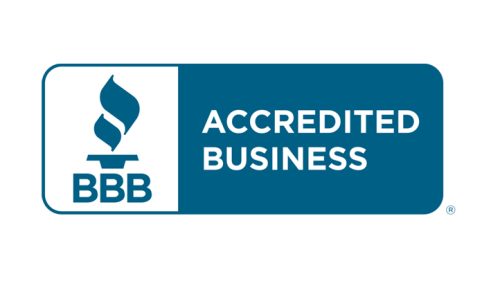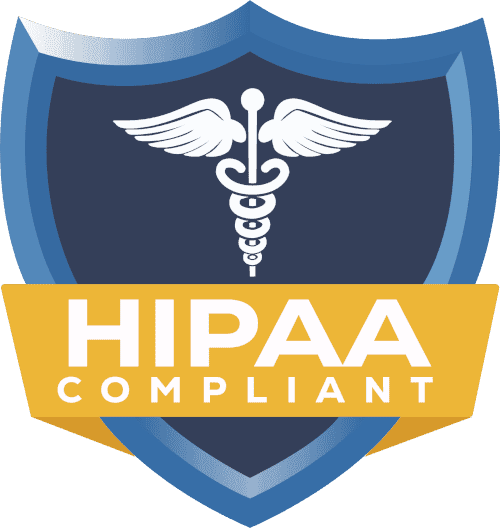How Much Does Provider Credentialing Cost in Massachusetts

Credentialing in Massachusetts has a direct impact on cash flow, payer access, and timely billing. Credentialing opens the door to reimbursement and ensures compliance, no matter which part of the state you practice (solo physician in Worcester, behavioral health clinician in Boston, or a multi-specialty group attending to the suburban patients). This guide describes the ways credentialing is conducted in Massachusetts, the motivating forces of costs, the general price ranges and schedules, the costs that are not visible, and the time when outsourcing is economical.
The Provider Credentialing Process in Massachusetts Explained
Credentialing in Massachusetts grants a payer and a health system in assuring the education, licensure, training, work history, malpractice history and the background of a provider.
In the state of Massachusetts, physicians are licensed by the Massachusetts Board of Registration in Medicine. EOHHS administers MassHealth (Medicaid) and other programs. On the federal level, CMS also sets Medicare enrollment and revalidation standards (via PECOS), and many commercial payer strategy aligns with NCQA standards.
Most of the Massachusetts payers access the information that has been verified by the primary source using the CAQH ProView (or similar). The providers are expected to keep the profiles updated, upload required documentation, and resubmit tests on a frequent basis. The hospital privileging committees and payers use this confirmed information to allow participation in the network and clinical privileges.
As primary source checks are included, any minor discrepancies, lapsed licenses, missing malpractice certificates, or work gaps can lead to time and cost wastage.
Factors That Influence Credentialing Prices in MA
Depending on the specialty, the number of payers, and practice arrangement, the price of provider credentialing in Massachusetts differs.
1. Provider type and specialty:
The certification of primary care is simplified more frequently. Inpatient procedures specialized, such as behavioral health, surgical, or procedural, may require time and cost-increasing documents and privileged packets, and references.
2. Number of payers:
Both Medicare and MassHealth, and commercial payers must be billed and verified individually; the more the panels, the higher the cost.
3. Practice size:
Multi-site groups pay more in general, yet are frequently given volume pricing, which reduces per-provider expenses. Individuals who provide services do not have economies of scale but have fewer files.
4. First credentialing and recredentialing:
First, credentialing is more expensive than subsequent PSV and contracting. Recredentialing is done either within 2-3 years and is also less costly.
5. Hospital privileging:
The providers that need to be admitted with rights or have special privileges will have a significantly greater number of reviews and paperwork by the committee, and this will also be time and costly.
6. Outsourced vs. in-house credentialing:
In-house credentialing may seem cheaper, but it often includes costs like the time of personnel, training, program, and rework. Another aspect is outsourcing, which is also transparent pricing, and it can reduce the duration of the contract.
True Prices You Can Pay
These are the real expenses that should be paid based on the number of payers, the kind of provider, and complications, but on average, the Massachusetts ranges can be considered:
- Single-payer of individual providers: 200-400.
- Full package (Medicare + MassHealth + 3-5 commercial payers): $900-2000+ per provider, based on the complexity.
- Recredentialing/CAQH is a less expensive recurrent cost, taking place every 2-3 years.
- Hospital privileging/ contract negotiation: Extra fees that are aiming at hastening the approvals and get them to be devoid of delays.
Enrollment of behavioral health and telehealth practices in multiple payers or registered in multiple states may marginally raise their payment, as it is more complex.
How Long Does Credentialing Take in Massachusetts?
Credentialing timelines vary based on the form of payer, the thoroughness of the documents, and the characteristics of hospital privileges.
- Primary credentialing: 60-120 days; some more complex cases might even require more time.
- Medicare (PECOS/MAC): 8-12+ weeks and completion of the MAC workload.
- MassHealth (EOHHS): Commercial plans can not match the duration of state-level reviews.
- Commercial plans: Typically 60-120 days based on the running of CAQH and documents.
- Hospital privileging: It is usually 3 to 6 months, as per the schedules of committees and verifications.
These timeframes should be considered in the income projections of the practices since credentialing has a direct effect on cash flow.
Hidden Fees and Common Credentialing Pitfalls
Providers can be caught by some of the hidden costs, which include:
- Notarization, background checks, or fingerprinting.
- Pass through fees on primary sources verification.
- Reference Verification fees (Out of state)
- Delays due to failure to submit the CAQH re-attestation or not submitting the entire application.
Payers follow-ups and slow approvals can also come as a result of late deadlines, outdated CAQH profiles, and unreliable records of employment. The absence of documents that are relevant to a particular specialty (i.e., training or hospital privilege letters) often delays an application.
The development of price lists, active follow-ups, and cooperation with a credentialing partner helps to avoid such pitfalls and ensure that the schedules can be predicted.
Outsourcing Credentialing in Massachusetts: Is It Worth the Cost?
The outsourcing will offload the clinical and administrative staff with non-credentialing responsibilities so that they can focus on patients and operations. It includes established payer relations, the homogenization of the working process, and committed personnel with experience in handling complex processes correctly and effectively.
Full packages are typically inclusive of CAQH implementation and administration, Medicare /MassHealth registration, commercial third-party contracting, and hospital approvals to simplify budgeting and prevent omissions.
Outsourcing can save the overall costs through cutting down the in-house overhead and the eradication of wait time, and ensuring timely reimbursements. It is a smart business and business choice when it comes to a busy practice.
How to Choose the Right Credentialing Partner in Massachusetts
Massachusetts experience, open pricing, and well-written service-level agreements (SLAs) on turnaround time should be among the priorities when making a decision on a credentialing vendor. Ask your insurance networks and hospital affiliations about practices.
Review your familiarity with EOHHS/MassHealth regulations, your Medicare MAC, and large commercial plans.
Essential questions to ask:
- Do you carry out CAQH implementation and continuing attestation?
- Can you manage the hospital privileging and contracting?
- How do you manage the recredentialing deadline and reporting status?
- Pricing structure: Does it price on a flat basis, per provider, or subscriptions?
Credex Healthcare is a full-cycle credentialing and CAQH maintenance, payer enrollment, and hospital privileges provider in Massachusetts. Credex can simplify all processes of avoiding the lines and making the bills faster by using clear and transparent prices and familiarity with the payers in the region.
Tips to Reduce Delays and Keep Costs Low
- Professionals: Advice on How to Minimize Delays and Still Keep the Costs Low.
- Maintain your CAQH ProView and re-attest yourself on a regular basis, at least quarterly. Ensure there is an employment history, malpractice coverage, and contact information.
- Keep electronic copies of all the major formative documents, licenses, DEA, board certifications, malpractice policies, and W-9s.
- Assign recredentialing dates on a regular calendar and allocate responsible staff or suppliers.
- Apply to more than three payers at the same time when registering.
- Concurrence of bundled vendor prices to lower unit provider prices to prevent unexpected costs.
FAQs
Q: What is the price of provider credentialing in Massachusetts?
Costs depend on the scope. Single-payer enrolments are generally between $200-$400. The multi-payer packages are sometimes up to $900-$2,000/+ per provider. The smaller costs are recredentialing and CAQH maintenance.
Q: What is the time required for credentialing?
The majority of payers mobilize providers in 60-120 days. The process of hospital privileges will require 3-6 months.
Q: Are there any additional fees concerning CAQH/payers enrollments?
The ProView CAQH is free, but notarial background checks and verification fees can be paid.
Q: Can outsourcing save money?
Often yes. Outsourcing saves internal overheads, avoids expensive mistakes, and cuts time to contract, safeguarding revenue and reducing the overall cost.
Q: What is unique about the Massachusetts credentialing?
Individual state EOHHS/MassHealth regulations and hospital committees may lengthen schedules. The knowledge of local payers and experience in hospitals avoids delay.
Final Thoughts
Credentialing in Massachusetts is a direct investment into your practice income and rules, as well as into your image. Though these costs vary based on the type of provider, the payer mix, and the options of outsourcing, the actual cost is the area of the delayed or denied billing due to errors in the procedure of credentialing.



















